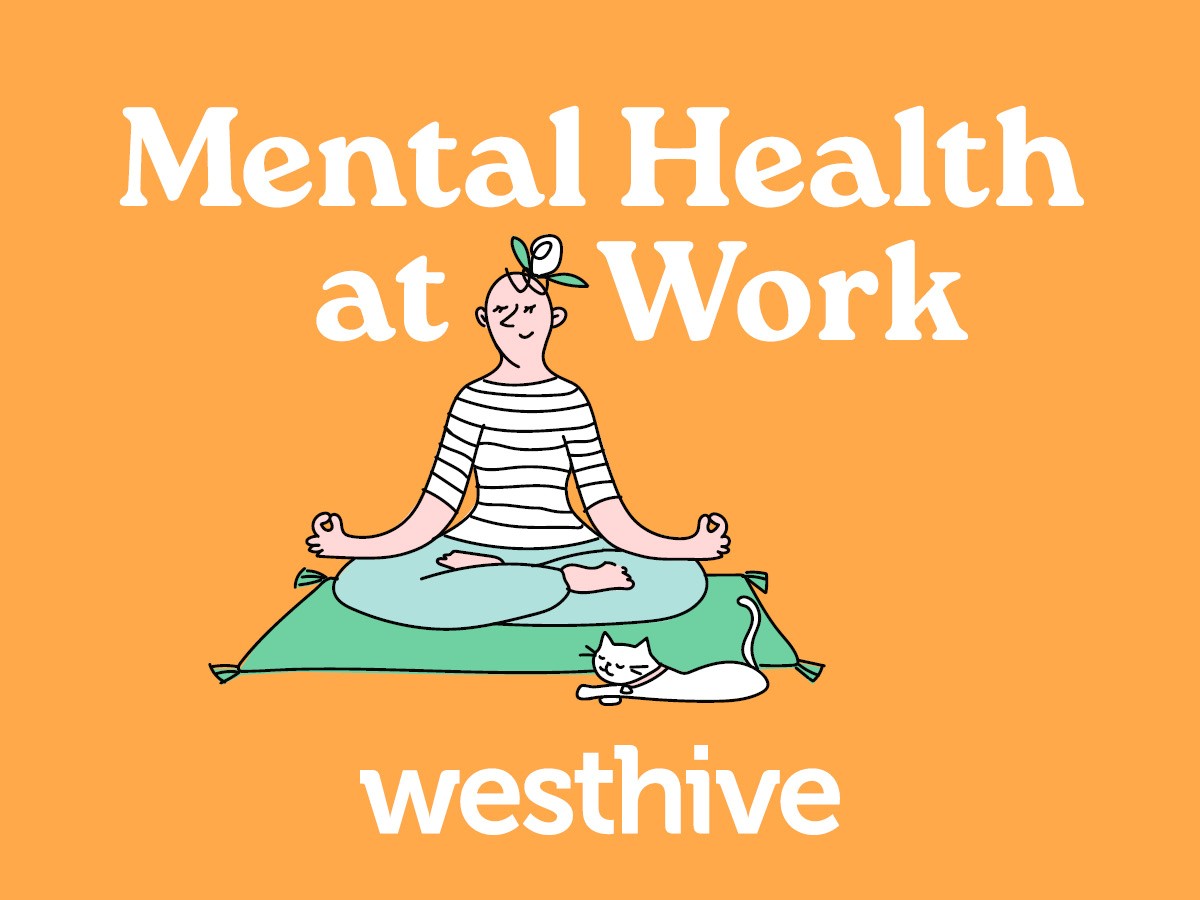On October 10, World Mental Health Day reminds us how important it is to talk about mental health. But true wellbeing isn’t about a single day – it’s about a mindset:
How can we create work environments where people stay healthy, motivated, and creative in the long run?
At Westhive, we believe that mental health is a team effort. It grows where people feel safe, where breaks are encouraged, where leadership is empathetic – and where seeking support is not a taboo.
Why Mental Health at Work Matters
Mental health challenges are no longer a niche issue. According to the World Health Organization (WHO), depression and anxiety cost the global economy around one trillion US dollars every year in lost productivity.
But beyond the numbers, the human impact is far greater: chronic stress, overload, and exhaustion drain energy, creativity, and joy.
Work can give meaning, open perspectives, and build confidence – when the conditions are right. And that’s where organizations and leaders carry real responsibility.
Responsibility That Pays Off
Mental wellbeing isn’t a “nice-to-have” – it’s a foundation for good work.
Teams that can talk openly about stress and workload show higher satisfaction, lower turnover, and stronger engagement.
A healthy work culture also makes business sense: fewer absences, better performance, and greater loyalty.
But real change doesn’t come from wellness vouchers or fruit baskets – it grows from a culture of trust, mindfulness, and the creation of supportive environments.
What Each of Us Can Do
Employees can also play an active role in supporting their own mental health – and by doing so, contribute to a healthier team dynamic.
It’s not about doing everything perfectly, but about becoming more self-aware and respecting personal boundaries.
1. Schedule real breaks.
A full calendar and endless to-do lists are part of modern work – but rest is not a luxury. Even a few minutes away from your screen can reduce stress and recharge your mind. A short walk, deep breathing, or simply looking away from the monitor can make a big difference.
2. Respect your own limits.
Constant availability or the feeling of having to “just finish one more thing” leads to exhaustion over time. Learn to draw clear lines between work and personal life: finish on time, mute notifications, and make space for what truly recharges you.
3. Start open conversations.
No one has to handle everything alone. When pressure builds, talk about it early – with colleagues, your manager, or HR. Honesty builds trust, and you’ll often find you’re not the only one feeling that way.
These three steps may sound simple, but they’re essential.
Mental wellbeing grows through many small, intentional actions – day by day.
What Companies Can Do
Organizations have a significant impact on mental health.
Working conditions, company culture, and leadership behavior all shape whether people feel supported, motivated, and mentally well.
1. Encourage breaks and healthy boundaries.
Rest is not wasted time – it’s a prerequisite for focus and quality.
Allowing regular short breaks, clear “offline times,” and disconnecting after hours helps employees sustain energy. Leaders should lead by example: those who never switch off send the signal that rest equals weakness.
2. Foster open communication.
Mental health thrives on dialogue. Honest conversations about stress or workload build trust and often prevent more serious issues.
A sincere “How are you, really?” can do more than any intranet initiative.
3. Practice mindful leadership.
Leaders shape company culture.
Those who listen attentively, show appreciation, and acknowledge small wins not only boost motivation but also strengthen psychological safety.
Empathetic leadership isn’t a soft skill – it’s a key driver of long-term success.
4. Make support visible.
Many organizations already offer coaching, flexible work models, or counselling – but employees often don’t know about them.
It’s not enough to have programs; they need to be visible and accessible.
Only those who know support exists can make use of it.
5. Design the work environment consciously.
The spaces we work in affect how we feel – often more than we realize.
Natural light, quiet zones, ergonomic furniture, fitness options, or healthy food offerings all influence concentration, creativity, and wellbeing.
A thoughtfully designed office can reduce stress, encourage communication, and strengthen team cohesion.
When people enjoy being at work, they work better – and healthier.
A Shared Effort
Mental health doesn’t result from isolated actions – it grows from attitude.
It thrives where work stays human – where strain isn’t taboo and care is part of everyday culture.
At Westhive, we believe that a healthy workplace begins with awareness – and becomes a strength when it’s part of the company culture.
Conclusion
Mental wellbeing isn’t a private matter – it’s a collective one.
It touches teams, leadership, structures, and communication alike.
Those who take responsibility as employers invest in what truly matters in the long term: people.
Westhive – Spaces for Inspired Work and Healthy Teams
At Westhive, collaboration is at the heart of everything we do – in environments designed to foster creativity, exchange, and wellbeing.
Our flexible workspaces and community areas are built to inspire, support focused work, and create space for genuine connection.
Because mental health at work doesn’t depend on leadership and culture alone – the environment we work in plays a crucial role too.
Quiet zones, open collaboration spaces, creative workshop rooms, sports facilities, and a healthy restaurant all contribute to an atmosphere where people feel good, recharge, and stay productive.
With eight locations across Zurich, Basel, Geneva, and Zug, Westhive offers workspace concepts that rethink modern work – from team offices and corporate suites to meeting and event spaces.
Westhive is more than a workplace – it’s a community that inspires, connects, and makes the work of tomorrow possible.

